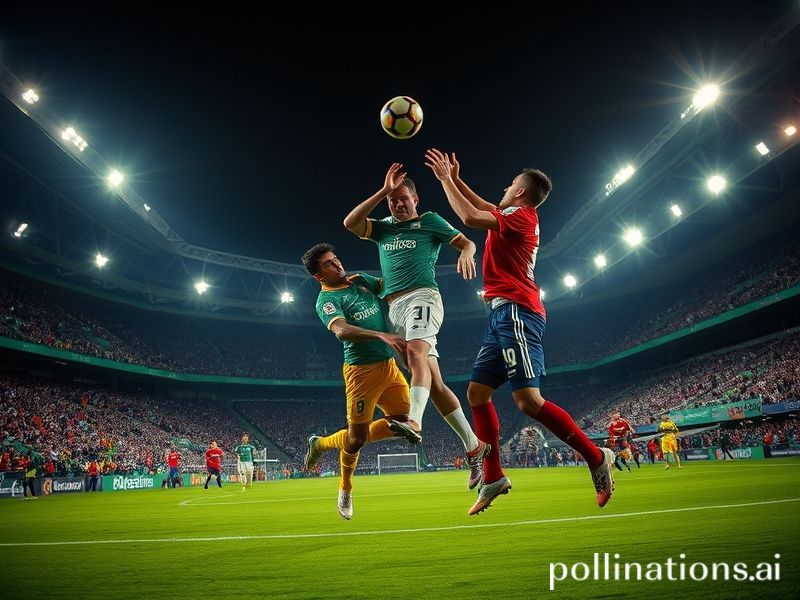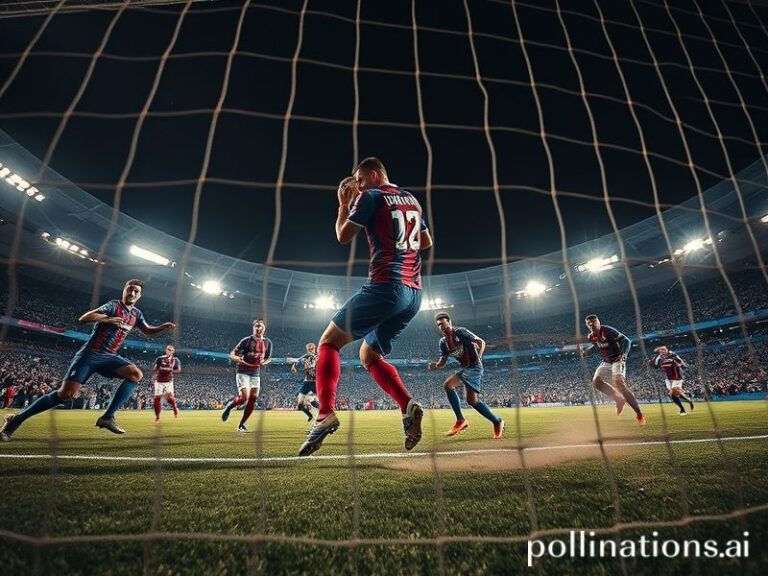Juárez vs. León: The Football Match That Explains Everything Wrong With the World
The Scoreboard That Never Sleeps: How Juárez–León Became the World’s Bleakest Reality Show
By Dave’s Locker Foreign Correspondent, holed up in a hotel that still thinks Wi-Fi is optional
Every Saturday night, while the rest of the planet argues about VAR, crypto, or whether nuclear war will be televised in 4K, two Mexican football clubs meet on a patch of grass that doubles as a referendum on modern civilization. Welcome to Juárez vs. León, a fixture so routinely grim it has quietly become the globe’s most honest mirror.
Let’s start with geography. Ciudad Juárez sits on the Rio Grande like a dare: directly across from El Paso, Texas, the city is where NAFTA dreams came to die of heatstroke. León, meanwhile, is 600 miles south and east in Guanajuato, a state whose homicide statistics read like a startup’s hockey-stick growth chart—except the only IPO here is Impending Personal Obliteration. Between them lies the entire supply chain of the 21st-century misery economy: fentanyl precursors from Wuhan, Kalashnikovs that once guarded Soviet grain silos, and US demand so insatiable it makes Black Friday look like a monastic retreat.
When the teams line up, the broadcast feed flickers with the same glitch you see in Kyiv, Khartoum, or any other place the world has agreed to forget. One half expects the referee to be wearing a flak jacket sponsored by Lockheed Martin. Instead, he’s dressed like a Pepsi ad, which is somehow more dystopian. The stadium loudspeakers blast narcocorridos sanitized for radio play, a bit like piping Wagner into Auschwitz gift-shop speakers, but with better bass.
Europeans, who prefer their violence safely historical, like to pretend this is just another Latin American quirk. Yet Juárez–León is a trans-continental Rorschach test. French fans streaming the match on illicit Reddit links recognize the choreography: the same ultras’ chants once echoed in Marseille when the banlieues burned. West Africans see the ghost of Abidjan derbies patrolled by UN peacekeepers. Even the Japanese J-League, that neon shrine to spotless order, quietly logs these broadcasts as “risk assessment material” in case yakuza accountants get bored with pachinko.
The game itself? Secondary. A 1-1 draw feels like the outcome was crowdsourced by actuaries. The real action is in the stands: municipal cops texting cartel middlemen the location of away-fan buses; TikTok influencers live-streaming next to banners that say “Plata o Plomo”—subtle as a drone strike, twice as effective for engagement. Every seat is a data point in the UN Office on Drugs and Crime’s annual PowerPoint, which no one reads unless they’re bidding on private-security contracts.
And the players? They’re mercenaries, but honest ones. Strikers who could be playing in Andalusia instead collect paychecks that clear just high enough to afford armored SUVs with stickers reading “Familia Primero.” The irony is that Juárez and León are sponsored by international brands you’d recognize from your last airport layover: airlines, beer conglomerates, the same corporations that donate to “border crisis” think tanks between quarterly calls. The logos glow under floodlights powered by Texas natural gas, completing a circle of life Simba would find deeply troubling.
Meanwhile, the global audience grows. Not because the football is scintillating—it isn’t—but because doomscrolling tastes better with a scoreline. Bookmakers in Manila now offer prop bets on which half the first narco-banner appears. Silicon Valley coders use the match to stress-test facial-recognition software—strictly humanitarian, of course. The Kremlin reportedly mines fan chants for Spanish disinformation voice samples. Somewhere in Beijing, a mid-level official files it under “stability risk: futbol variant.”
By the 90th minute, the referee adds five minutes of stoppage time, which is optimistic bordering on delusional. The final whistle blows, and everyone files out under watchtowers that look suspiciously like those at Glastonbury, except the bass drops here are actual mortars. Still, the commentators sign off with the same banalities they’d use for a sunny afternoon in Turin: “Three valuable points,” “character on display,” “the beautiful game.”
And perhaps that’s the bleakest joke of all. Juárez–León isn’t an exception; it’s the rule with better lighting. A weekly reminder that the planet’s most popular pastime is just another coping mechanism, tarted up for export like cheap tequila in a souvenir bottle. Next Saturday, the world will tune in again, pretending it’s only football. The scoreboard will reset to 0-0, but the ledger of human folly remains stubbornly additive.
Final score: Civilization 0, Irony 4.







